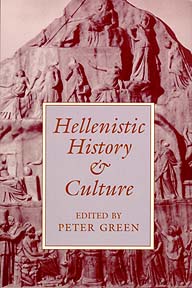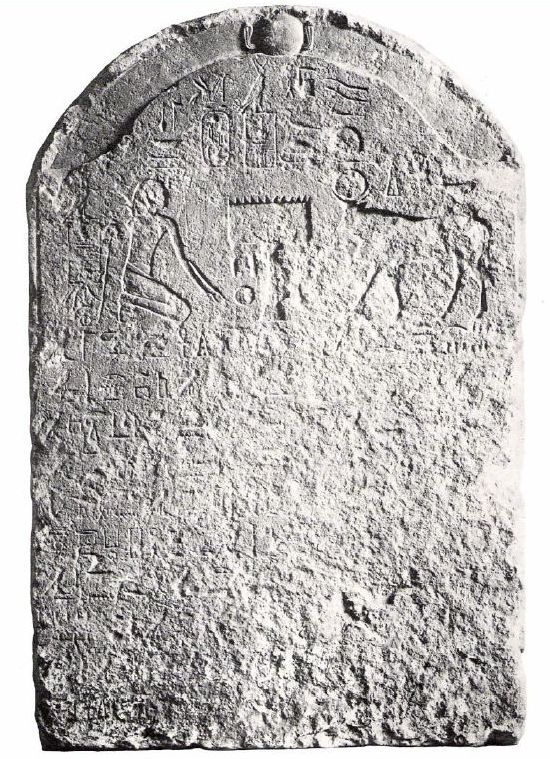Greeks and Egyptians
1.1 – Introduction
P. M. Fraser, in his monumental study of Alexandria, made the following statement, which largely encapsulates post-Second World War scholarly assumptions about cultural interaction in the city and Egypt at large throughout the Ptolemaic period:
“Very little is heard of the Egyptian population until the end of the third century, and from this general silence we may infer that the gulf between Greek and Egyptian was almost complete in normal social intercourse of the middle and upper classes, though no doubt contact existed at a lower level”
That such a clear divide ever existed, even in earliest Alexandria, has rightfully come under scrutiny. Susan Stephens’ work “Seeing Double,” for example, explicitly argues that the “Greek” poetic and artistic achievements of Alexandria must be interpreted as being fully engaged with Egyptian culture.
Simon Goldhill, in a review of her work, believes her to be with this thesis provocatively setting out to “debunk the purity of Greek artistic achievement.”
The notion that cultural engagement and interaction should be provocative speaks to an assumption long-held for the study of Ptolemaic Egypt: that contact zones between Greeks and Egyptians were few, understanding minimal, and that cultural and ethno-linguistic
boundaries were vigorously maintained This division provides the primary paradigm through which Egypt is viewed: Greeks and Egyptians were defined by respective ethnic identities, which in turn determined and limited an individual’s scope of action.
.. the discourse on cross-cultural interaction for this period has suffered from an assumed relationship between “culture” – taken broadly to mean a mutually recognizable set of behaviors, traditions, and symbols – and “ethnicity” – an identification that relies on socially constructed ideas of common origin – that often borders on equivalency. A concern for this merged “ethno-cultural” identity of an individual or group was intertwined with concerns about race and cultural purity that were partly a projection of the concerns of a very specific, colonial present onto a very different past.
This study assumes that “ethnicity” and “culture” are not equivalent terms, and that testing their relationship – and their relationship to material culture – is necessary for a more nuanced understanding of cross-cultural interaction in Ptolemaic Egypt.
This work adds an archaeological case study to a field that is often dominated by textual evidence, contributing to a trend in scholarship on Ptolemaic Egypt which has been developing over the last two decades.
This paradigm denies a complete separation, and emphasis has instead been placed on
how Greek and Egyptian populations interacted with each other; that they did so is of no question. However, this also assumes that the identities of “Greek” and “Egyptian” are not
a priori the most important. An overwhelming emphasis on a perceived ethno-cultural “Greek” and “Egyptian” identity has masked the presence and importance of other identities, such as socioeconomic level, regional origin, and gender. For the archaeologist, this has led to biased interpretations of material culture, such that everything carries an implicit ethnic meaning"
1.2 – The “Two Societies” and the Ethnicity Problem
The tendency until quite recently has been to see “Egyptians” and “Greeks” as two monolithic blocks: this is the thesis of the existence of two separate societies, native Egyptian and immigrant Greek.
...A full analysis of the evidence cannot support the view that a Greek/Egyptian dichotomy was the primary organizing principle of Ptolemaic society.
...With current understandings of identity broadly and ethnicity in particular, we must reject the conception of “Greeks” and “Egyptians” as two monolithic racial-cultural-linguistic blocks, and – perhaps more importantly – the
a priori assumption that Greek and Egyptian “ethnic” identities were a primary organizing force in society.
...The typical model of cultural interaction used in discussions of Ptolemaic Egypt, namely acculturation under the problematic and ill-defined moniker of “Hellenization” or its converse “Egyptianization,” has served to reinforce the model of the “two societies.”
1.4 – Archaeology, Identity and Ethnic Interpretation
The previous section described theories of identity, ethnicity, and cultural interaction and their relevance to Ptolemaic Egypt in order to demonstrate the weakness of the “two societies” thesis and argue for a more nuanced view of ethnicity.
..I have shown that a society characterized mainly by the “separateness” of two ethnic groups is too simplistic a model. Ethnic identities did not predominate in the funerary realm. Once
a priori conceptions of the importance of “Greek” and “Egyptian” identities are removed,
...it becomes apparent just how diverse in population and tradition Ptolemaic Egypt was; the mortuary systems of the period reflect this. The study of Ptolemaic Egyptian society is best-served by moving beyond ethnic dichotomies to a more nuanced conception of identity and social change

















 Reply With Quote
Reply With Quote























